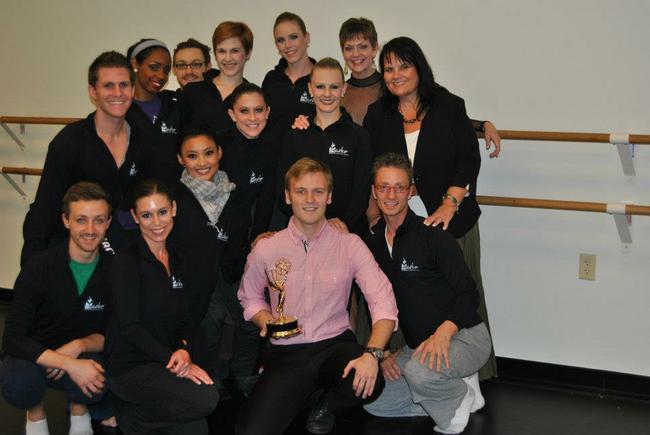At first glance, Haris Fazlic seems like a typical MU student. He’s 19, he’s from St. Louis, he’s majoring in journalism and German, and he really likes girls in short shorts. But he’s also an Emmy-worthy choreographer, although you won’t hear Haris bragging about it anytime soon.
“I just coincidentally happened to win an Emmy,” Fazlic says. “Like, I promise I didn’t try to.”
On Sept. 22, Fazlic was awarded a Mid-America Emmy for Best Historical/Cultural Program Feature Segment for his contribution to the Modern American Dance Company dance show “Veza.” It was featured on the show “State of the Arts” on the Higher Education Channel in St. Louis.
The idea for “Veza,” which means “connection” in Bosnian, started more than four years ago when MADCO’s Executive/Artistic Director Stacy West met Layla Penetta, a Bosnian professor, to discuss the development of the arts in Bosnian culture. She learned that St. Louis is home to 50,000 Bosnians, which is the largest Bosnian population in the world outside of Bosnia.
“I thought, ‘Well, I’m really interested in the culture, and I’m interested in dance,’” West says. “Really what I should be doing is paying attention to this large group of people in my own community, so that’s where I’m going to start.’”
West then sought out Fazlic’s father, who ran the St. Louis-based Bosnian dance troop Bosansko Kolo before it was disbanded. Fazlic’s father passed the offer down to his son, and 17-year-old Fazlic jumped at the opportunity. West initially asked Fazlic to put together a Bosnian dance troop, choreograph a dance and perform in it, but Fazlic ended up contributing much more than that.
“We were working at the rehearsals or whatever, and all the dancers were just …” Fazlic pauses for dramatic effect, “… _so_ hot. Like, ridiculously attractive. So I played guitar, because what are you going to do? There’s a bunch of girls. You have to play guitar.”
Fazlic’s impromptu performance of his own Bosnian love song ended up being featured prominently in the show, along with a traditional Bosnian folk dance choreographed and performed by Fazlic and his troupe. The show also included two other contemporary dances reflecting the story of Bosnians after the war of independence in the early 1990s.
“(Fazlic) gave the piece a real human component and an authenticity to the story because it was his personal family and stories,” MADCO’s assistant rehearsal director Lindsay Hawkins says. “But he could play the guitar and sing, and he had a group of dancers that were doing traditional folk dancing. I mean, he had his hand in every aspect of the creative process.”
Fazlic, who was born a Bosnian refugee in Germany and spent his youth moving between Bosnia and the U.S., modestly deflects any praise received and will direct any and all attention to the culture and his people.
“This award was for Bosnia,” says Fazlic, who donated his award to HEC-TV. “I’m just happy that our culture finally got some recognition. There are 50,000 Bosnians in St. Louis that don’t get recognized, so it’s nice to have our culture spoken for and appreciated.”






